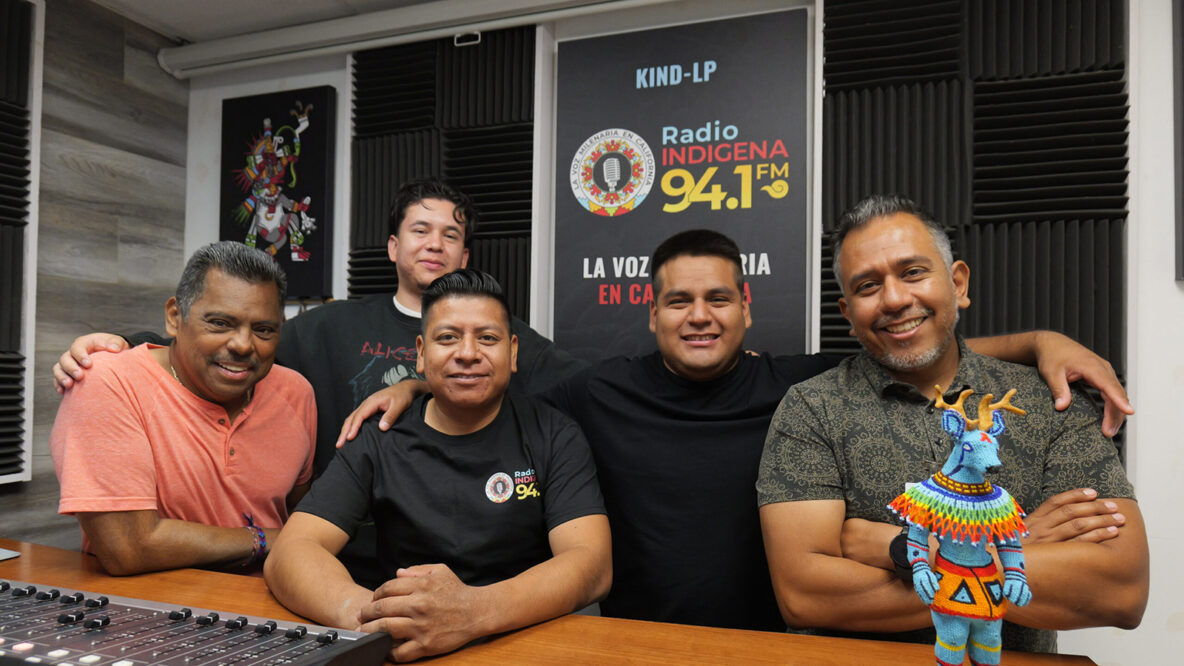This post is part of a series on the recipients of Press Forward’s Open Call on Closing Local Coverage Gaps. Read the series here.
In the fields of Oxnard, California, Indigenous farmworkers aren’t allowed to use their cellphones. Instead, they carry a radio for their six to eight hour shift – making it an “essential tool for our community,” said Arcenio Lopez, executive director of the Mixteco Indigena Community Organizing Project (MICOP), the organization behind the local station Radio Indigena.
Radio Indigena broadcasts essential information in six languages – Mixteco, Zapoteco, Purepecha and Triqui, as well as Spanish and English – echoing the linguistic diversity of its audience.
The station was born out of a profound need for information, particularly in times of crisis. Lopez shared that during emergencies, like the California wildfires, vital updates were primarily disseminated in English and Spanish, leaving Indigenous language speakers, who constitute about 60% of the farmworker community, dangerously uninformed.
“Our people didn’t feel confident or comfortable to call any Spanish radio station because they will make fun of them publicly,” Lopez said, highlighting the discrimination and racism that often prevents Indigenous individuals from seeking information from mainstream sources.
By featuring these languages on air, the station has encouraged parents to teach their children their native tongues, countering a concerning trend of language loss driven by societal pressures and discrimination.
“Information can determine either death or life,” Lopez emphasized, underscoring the impact of accessible information on the lives of Indigenous communities.

